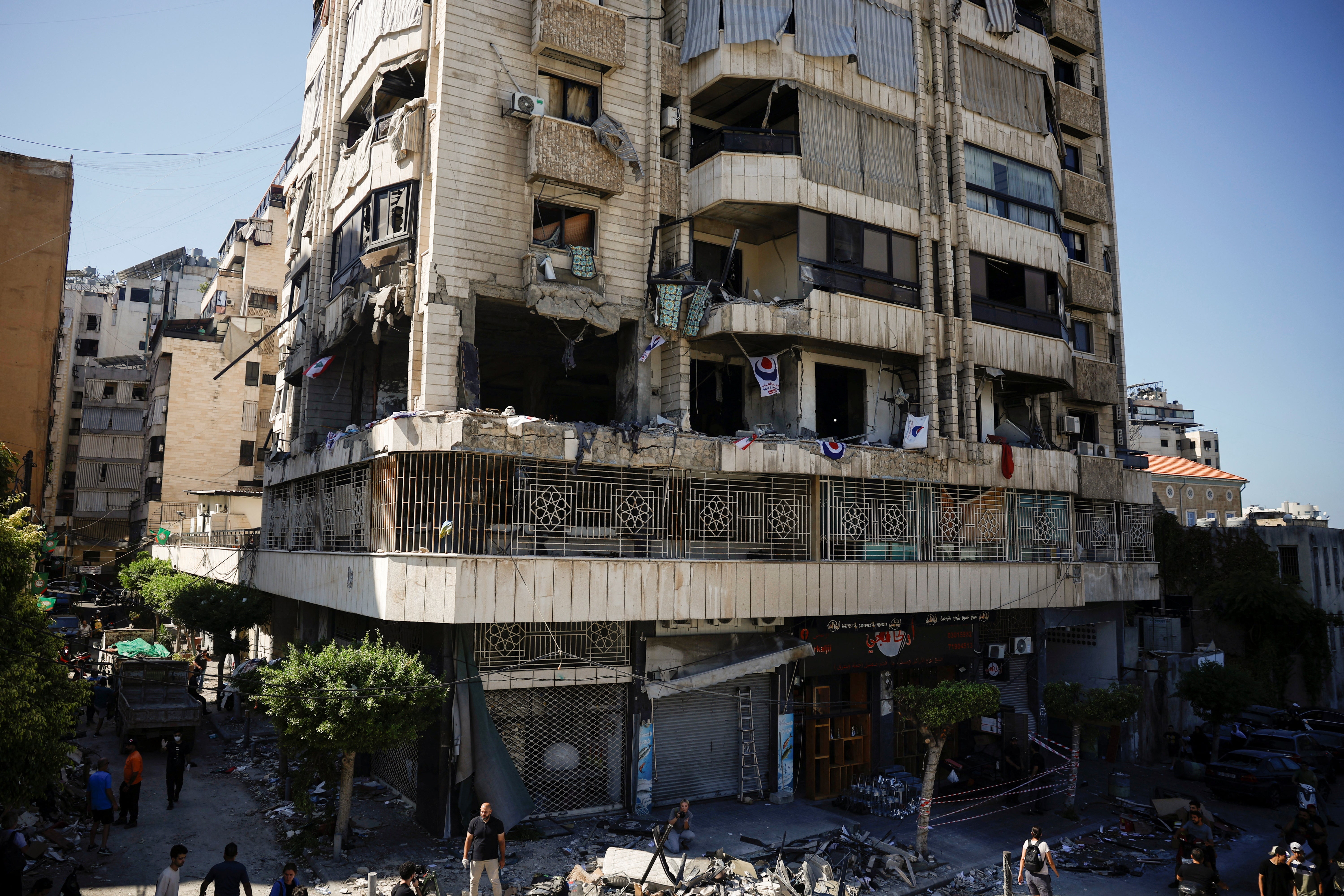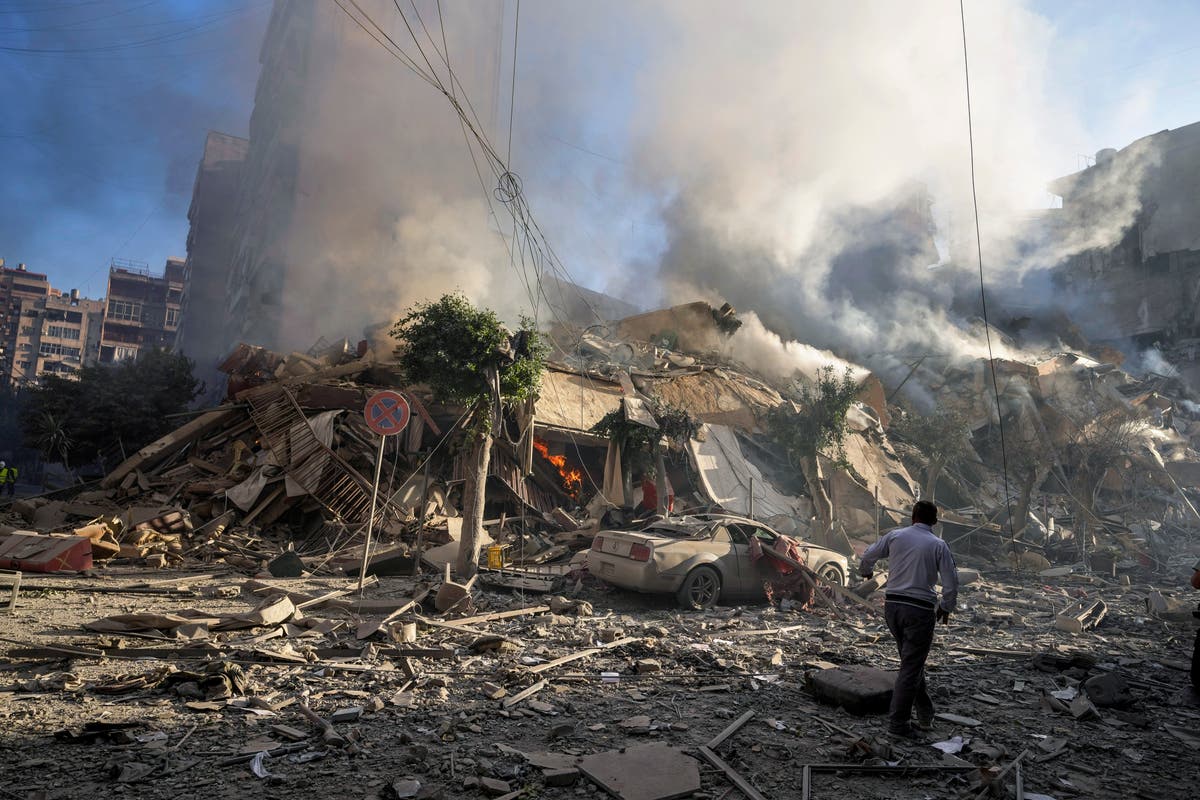Strikes by Israel on Beirut have killed at least nine as the military called on citizens in southern Lebanon to evacuate more than 20 more towns in a sign of a potential expansion of its ground and air assault on Hezbollah.
The latest warnings took the number of southern towns subject to evacuation calls to 70 and included the provincial capital Nabatieh, suggesting another Israeli military operation was imminent, further stoking fears of an all-out regional war.
On Thursday, Israel bombed central Beirut in an attack the Lebanese health ministry said killed nine people. A Hezbollah-linked civil defence group said seven of its staff, including two medics, were killed in the Beirut attack. In response, Josep Borrell, the EU’s high representative for foreign affairs and security policy, accused Israel of a possible breach of humanitarian law.
“Not only are civilians victims of attacks, including in densely populated areas, but they are deprived of emergency care. I condemn this violation of IHL [international humanitarian law],” he wrote on Twitter/X. Israel denies all such accusations.
The World Health Organisation chief said 28 healthcare workers had been killed over the past 24 hours in Lebanon. “Many health workers are not reporting to duty and fled the areas where they work due to bombardments,” director general Dr Tedros Adhanom Ghebreyesus told an online press briefing. “This is severely limiting the provision of mass trauma management and continuity of health services,” he said.
In Beirut’s southern suburb, known as Dahiyeh, a dense neighbourhood where Hezbollah holds sway, several explosions were heard on Thursday and several large plumes of smoke rose after heavy Israeli strikes. Israel also said it struck a municipality building in the southern Lebanese town of Bint Jbeil, killing 15 Hezbollah members and destroying many weapons.
The Israeli military said it had struck around 200 Hezbollah targets across Lebanon, including weapons storage facilities and observation posts.
Hezbollah and Israel started trading near-daily cross-border fire in the wake of Israel launching its war in Gaza in retaliation for the 7 October attack on Israel by Hamas, in which around 1,200 people were killed and 251 taken hostage. Israel’s retaliatory air and ground assault in Gaza has killed at least 41,700 people, according to the latest update from the health ministry in Gaza, and has led to more than 90 per cent of the enclave’s population being displaced.

More than 1.2 million Lebanese have been displaced by Israeli attacks, and nearly 2,000 people have been killed as a result of Israeli attacks on Lebanon over the last year, most of them in the past two weeks, Lebanese authorities said.
Hezbollah also carried out new strikes, targeting what it called Israel’s “Sakhnin base” for military industries in Haifa Bay on the Mediterranean coast of northern Israel with a salvo of rockets. Hezbollah also claimed it had repelled several land operations by Israeli troops with the use of ambushes and in direct clashes.
Eight Israeli soldiers were killed in ground combat on Wednesday in south Lebanon.
The Lebanese army said two soldiers were killed by Israeli strikes in separate incidents in south Lebanon on Thursday, one in an attack on a military post and another in a strike on a rescue mission with the Lebanese Red Cross.
The army said it returned fire when the military post was struck, a rare action for a force that has historically stayed on the sidelines of major conflict with Israel. It is the first time the Lebanese army has fired on Israeli troops in almost a year of clashes with Hezbollah.
As it pushes into Lebanon, Israel is also considering its options for retaliation against its arch-enemy Iran.
Tehran launched the largest attack on Israel in its history on Tuesday in what it said was retaliation for Israel’s assassination of senior Hamas and Hezbollah leaders and its operations in Gaza and Lebanon. Iran backs both Hamas and Hezbollah. Israel has vowed to respond.
US president Joe Biden said on Thursday that the US was discussing possible strikes by Israel on Iran’s oil industry. Asked on a visit if he would support Israel striking Iran’s oil facilities, President Biden said: “We’re discussing that.” The price of oil jumped 5 per cent after the remarks before falling a little. Iran is in the world’s top 10 oil producers.
The Israeli military also said on Thursday that it killed a senior Hamas leader in an airstrike in the Gaza Strip around three months ago. It said a strike on an underground compound in northern Gaza killed Rawhi Mushtaha and two other Hamas commanders.
There was no immediate comment from Hamas. Mr Mushtaha was a close associate of Yahya Sinwar, the top leader of Hamas, who helped mastermind the 7 October attack. Mr Sinwar is believed to be alive and in hiding inside Gaza.
Reuters and Associated Press contributed to this report

